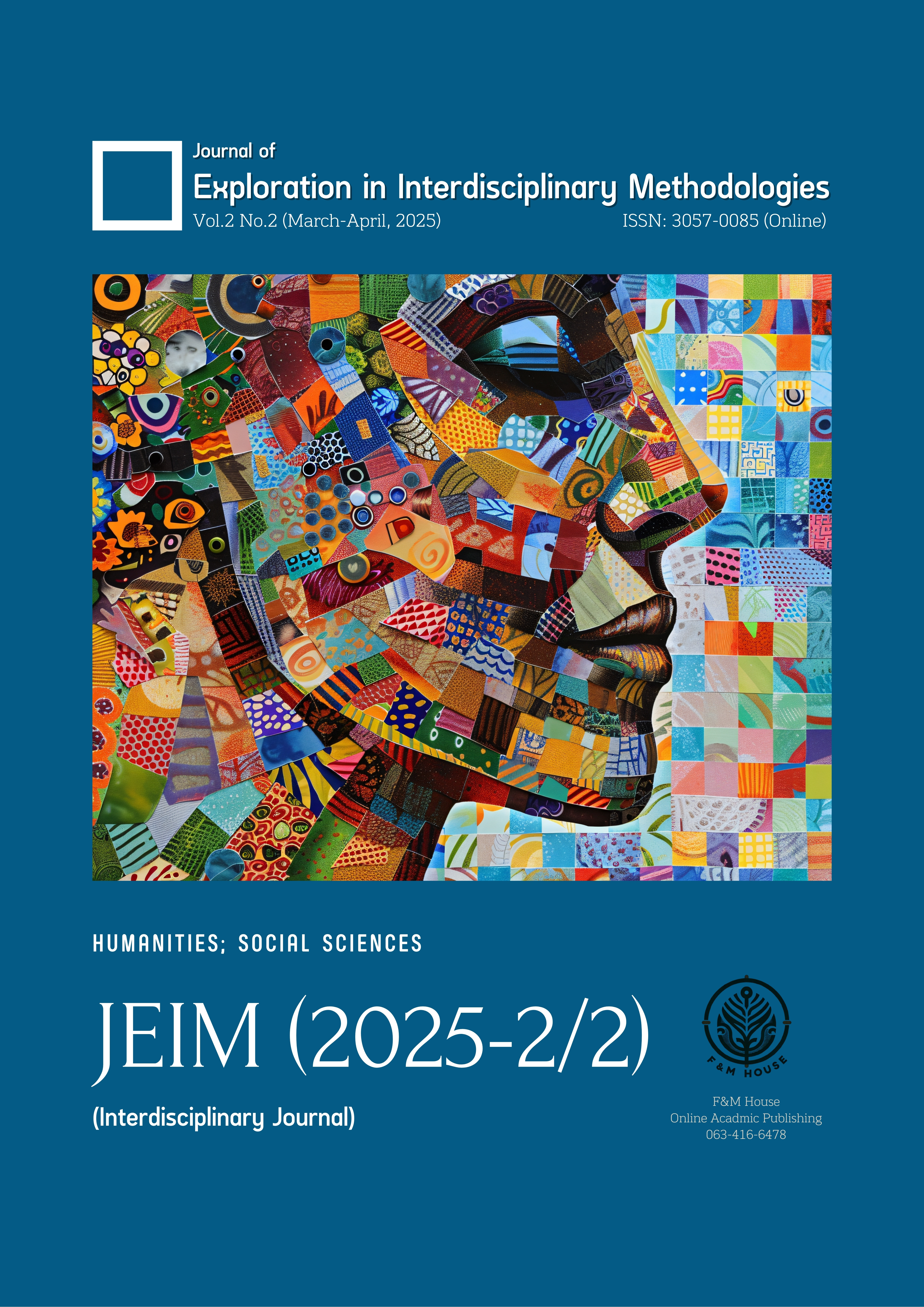The Intersection of Religion and Technology: Ethical Implications in the Age of AI
คำสำคัญ:
Artificial Intelligence Ethics, Cybertheology, Religious Technology, Ethical AI Governance, Spirituality and AIบทคัดย่อ
This paper examines the ethical implications of AI in religious contexts, highlighting its impact on theology, spirituality, and moral governance. As AI influences religious practices and ethical decision-making, concerns regarding human dignity, algorithmic bias, and cybersecurity emerge. Using Bernard Lonergan’s critical realism and cybertheology, this study evaluates AI’s role in shaping modern religious experiences and ethical frameworks, emphasizing the need for interdisciplinary collaboration to ensure technological advancements align with spiritual and moral values. The research investigates AI’s role in shaping religious practices, from automated clergy and digital sermons to ethical decision-making frameworks informed by religious teachings. Additionally, the paper discusses the broader societal implications of AI, such as algorithmic bias, cybersecurity concerns, and the ethical dilemmas posed by Artificial Superintelligence (ASI). By analyzing contemporary theological perspectives and ethical principles, this study seeks to establish a balanced approach to integrating AI into religious life, ensuring that technological advancements align with spiritual and moral values. The findings emphasize the need for interdisciplinary dialogue among theologians, technologists, and ethicists to develop ethical AI frameworks that respect religious traditions while fostering inclusive and equitable technological progress.
เอกสารอ้างอิง
Abdul Mufid. (2024). The ethical limitation of using artificial intelligence (AI) in teaching prophetic tradition. Jurnal Ushuluddin. Retrieved from https://www.semanticscholar.org/paper/d256b43704d1787266c9250ef6ac9d9a13bc35f8
Abdullah, H. (2023). Harmonizing artificial intelligence with Islamic values: A thoughtful analysis of religious, social, and economic impacts of technological advancements. American Journal of Smart Technology and Solutions, 2(2), 65-76. https://doi.org/10.54536/ajsts.v2i2.2239
Abedalrhman, K., Alzaydi, A., & Mohd Ismail, S. N. (2024). Human-robot interaction in Saudi Arabia's e-mobility transition: A literature review. CORE. Retrieved from https://core.ac.uk/download/620848289.pdf
Afifi, A. A., & Yufriadi, F. (2024). The coexistence of Kaum Mudo and Kaum Tuo: The transformation of Islamic education in Minangkabau. CORE. Retrieved from https://core.ac.uk/download/622496898.pdf
Ahmed, A., Bruner, K., Gajewski, A., & Kiraly, et al. (2018). Triple Helix, Fall 2018. Retrieved from https://core.ac.uk/download/211337566.pdf
Akinpelu, D. A., & Akintola, S. O. (2023). Navigating the legal and ethical terrain of artificial intelligence in enhancing patient safety in Nigeria. CORE. Retrieved from https://core.ac.uk/download/596328837.pdf
Alevizou, G., Alexiou, K., & Zamenopoulos, T. (2016). Making sense of assets: Community asset mapping and related approaches for cultivating capacities. CORE. Retrieved from https://core.ac.uk/download/46524325.pdf
Ali Said Al-Matari, M., Abadi, N. K. V., Rabbianty, E. N., & Azizah, S. (2023). Nurturing ethical character in Islamic colleges through interactive technology: Lecturers' perspective. CORE. Retrieved from https://core.ac.uk/download/595720598.pdf
Alkhouri, K. I. (2024). Exploring the interplay of cybersecurity practices and religious psychological beliefs in the digital age. CORE. Retrieved from https://core.ac.uk/download/620924756.pdf
Arinindyah, O., Asbari, M., Asrofi, I., & Nurhayati, et al. (2024). Transformative leadership: Harnessing religious values for positive educational outcomes. CORE. Retrieved from https://core.ac.uk/download/622526505.pdf
Ashraf, C. (2022). Exploring the impacts of artificial intelligence on freedom of religion or belief online. CORE. Retrieved from https://core.ac.uk/download/612954033.pdf
Asiedu, M., Dieng, A., Haykel, I., Heller, et al. (2024). The case for globalizing fairness: A mixed methods study on colonialism, AI, and health in Africa. arXiv. Retrieved from http://arxiv.org/abs/2403.03357
Banda, J. (2017). Impacts of congregation-based HIV/AIDS programs in Lusaka, Zambia: How abstinence and marital fidelity efforts function in overall strategies addressing HIV/AIDS. CORE. Retrieved from https://core.ac.uk/download/573852079.pdf
Barnes, E., & Hutson, J. (2024). Contemplating existence: AI and the meaning of life. CORE. Retrieved from https://core.ac.uk/download/618332248.pdf
Bergstra, J. A. (2011). Real Islamic logic. CORE. Retrieved from https://core.ac.uk/download/489623377.pdf
Blake, C. (2024). Effective strategies for building traditional church membership. CORE. Retrieved from https://core.ac.uk/download/621722535.pdf
Cathy Roche, P. J., Wall, D., & Lewis, D. (2022). Ethics and diversity in artificial intelligence policies, strategies, and initiatives. AI and Ethics, 3, 1095-1115. https://doi.org/10.1007/s43681-022-00218-9
Chen, Y. (2025). AI sovereignty: Navigating the future of international AI governance. CORE. Retrieved from https://core.ac.uk/download/613729699.pdf
Danaher, J., & Hopster, J. (2022). The normative significance of future moral revolutions. CORE. Retrieved from https://core.ac.uk/download/558709537.pdf
Dick, S. N. (2024). Virtual confessions: Examining the clergy privilege’s extension to artificially intelligent religious robots. CORE. Retrieved from https://core.ac.uk/download/617186469.pdf
Dr. Atiq-ur-Rehman. (2024). Religious / Quranic text, translation, and generative AI: A comparative analysis of online sources and ChatGPT. CORE. Retrieved from https://core.ac.uk/download/618236090.pdf
Emilio, F. (2023). Fairness and bias in artificial intelligence: A brief survey of sources, impacts, and mitigation strategies. Sci, 6(1), 3-3. https://doi.org/10.3390/sci6010003
Gaudet, M. J., Herzfeld, N. L., Scherz, P., & Wales, et al. (2024). Encountering artificial intelligence: Ethical and anthropological explorations. CORE. Retrieved from https://core.ac.uk/download/622202496.pdf
Hutson, J., McMaken, W. T., & Vosevich, K. (2024). From codex to code: Pedagogical transformations in the age of technological innovation. CORE. Retrieved from https://core.ac.uk/download/643573896.pdf
Ibanga, I. J. (2024). Human and technology in the 21st century. Bincang Sains dan Teknologi. Retrieved from https://www.semanticscholar.org/paper/0f37cb6e804a5d36d5ee8be5eda3012eb96a36e4
Jackson, H. L., III. (2023). The word made digital: Leveraging artificial intelligence to increase Bible engagement. CORE. Retrieved from https://core.ac.uk/download/588305024.pdf
Judijanto, L. (2022). Metamorphosis of learning ecosystems in response to the Fourth Industrial Revolution (4IR). CORE. Retrieved from https://core.ac.uk/download/595874753.pdf
Kanu, I. A. (2022). Dialogue on education, science, and development in Africa. CORE. Retrieved from https://core.ac.uk/download/541069695.pdf
Kontro, M. (2023). Attitudes towards euthanasia among the Finnish Evangelical Lutheran clergy. CORE. Retrieved from https://core.ac.uk/download/576799549.pdf
Koplow, D. A. (2004). Deliberate extinction: Whether to destroy the last smallpox virus. CORE. Retrieved from https://core.ac.uk/download/70373545.pdf
Li, Y., Lu, W., Wang, T., Wu, et al. (2024). Surveying attitudinal alignment between large language models vs. humans towards 17 sustainable development goals. arXiv. Retrieved from http://arxiv.org/abs/2404.13885
Lund, B. D., & Teel, Z. A. (2024). Fear of AI, Christianity, and the modern library. George Fox University Digital Commons. Retrieved from https://digitalcommons.georgefox.edu/cgi/viewcontent.cgi?article=2450&context=tcl
Magnusson, R. S. (1997). The sanctity of life and the right to die: Social and jurisprudential aspects of the euthanasia debate in Australia and the United States. CORE. Retrieved from https://core.ac.uk/download/267981146.pdf
Monteiro, M. C. C. (2021). The future is now: Liberal democracies and the challenge of artificial intelligence. CORE. Retrieved from https://core.ac.uk/download/516515942.pdf
Nieuwazny, J., Stanislawa, J., & ニエウヴァジニ, ヤグナ, スタニスワヴァ. (2021). 文化・宗教・時間経過認識の機械倫理アルゴリズムへの実装に関する研究. CORE. Retrieved from https://core.ac.uk/download/629197407.pdf
Opuni-Darko, G. (2024). Examining the synergy between the marketplace and the church in Ghana: Strategies for enhancing socio-economic development. George Fox University Digital Commons. Retrieved from https://digitalcommons.georgefox.edu/cgi/viewcontent.cgi?article=1660&context=dmin
Osman, I. (2023). Advancing ethical and sustainable economy: Islamic finance solutions for environmental, social, & economic challenges in the digital age. International Journal of Membrane Science and Technology, 10, 408-429. https://doi.org/10.15379/ijmst.v10i5.2515
Patil, S. R., Jadhav, S. N., & Nimbagal, S. (2024). A study on ethical implications of using technology in ESG investing and ensuring unbiased decision-making. Multidisciplinary Science Journal. Retrieved from https://www.semanticscholar.org/paper/98e2c211719599ef2da0d9d0b6799a374ad3b615
Peters, T. (2024). Cybertheology and the ethical dimensions of artificial superintelligence: A theological inquiry into existential risks. CORE. Retrieved from https://core.ac.uk/download/616884297.pdf
Premilla, D. C., Du, S., Noronha, E., Parboteeah, K. P., Trittin‐Ulbrich, H., & Whelan, G. (2022). Technology, megatrends, and work: Thoughts on the future of business ethics. Journal of Business Ethics, 180, 879-902. https://doi.org/10.1007/s10551-022-05240-9
Provost’s Office. (2016). The Faculty Notebook, September 2016. Retrieved from https://cupola.gettysburg.edu/cgi/viewcontent.cgi?article=1060&context=facnotebook
Provost’s Office. (2019). The Faculty Notebook, September 2019. Retrieved from https://cupola.gettysburg.edu/cgi/viewcontent.cgi?article=1067&context=facnotebook
Puzio, A. (2023). Robot, let us pray! Can and should robots have religious functions?: An ethical exploration of religious robots. CORE. Retrieved from https://core.ac.uk/download/596816795.pdf
Slimi, Z., & Villarejo-Carballido, B. (2023). Navigating the ethical challenges of artificial intelligence in higher education: An analysis of seven global AI ethics policies. TEM Journal. https://doi.org/10.18421/tem122-02
Srivastava, M., Gopalakrishna, K., Jaffar, A. M., Kumar, C. S., Bagade, J. V., & Naval, P. (2024). Exploring the relationship between artificial intelligence and data science. 15th International Conference on Computing Communication and Networking Technologies (ICCCNT). Retrieved from https://www.semanticscholar.org/paper/7606c0fc3ab5b2673729981aeaa1ab237fc4cc40
Szabó, Z., & Bilicki, V. (2023). A new approach to web application security: Utilizing GPT language models for source code inspection. Future Internet, 15(10), 326-326. https://doi.org/10.3390/fi15100326
Torras, C. (2019). Assistive robotics: Research challenges and ethics education initiatives. CORE. Retrieved from https://core.ac.uk/download/288625549.pdf
Tuomi, I. (2023). A framework for socio-developmental ethics in educational AI. CORE. Retrieved from https://core.ac.uk/download/552657713.pdf
Umbrello, S. (2023). The intersection of Bernard Lonergan’s critical realism, the common good, and artificial intelligence in modern religious practices. CORE. Retrieved from https://core.ac.uk/download/597110687.pdf
Visoka, G. (2011). International governance and local resistance in Kosovo: The thin line between ethical, emancipatory, and exclusionary politics. CORE. Retrieved from https://core.ac.uk/download/11310888.pdf
Wang, T. M. (2021). Voluntary contributions to public goods: A multi-disciplinary examination of prosocial behavior and its antecedents. CORE. Retrieved from https://core.ac.uk/download/420852914.pdf
Wang, X., Sanders, H. M., Liu, Y., Seang, K., Tran, B. X., Atanasov, A. G., & Qiu, Y. (2023). ChatGPT: Promise and challenges for deployment in low- and middle-income countries. The Lancet Regional Health - Western Pacific, 41, 100905-100905. https://doi.org/10.1016/j.lanwpc.2023.100905







